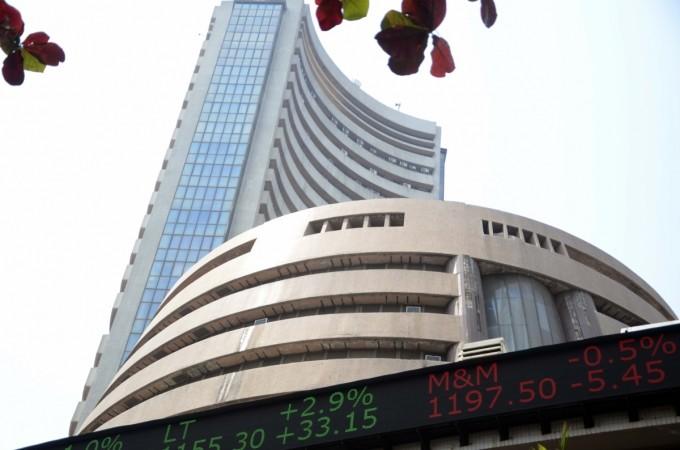
Even as Indian markets are trying to shrug off the impact of the turmoil in the banking industry, ratings firm Credit Suisse has said India is one of the worst performing markets among major economies. Further dampening the outlook, Credit Suisse has said that the Indian market remains expensive in terms of valuations and that it has seen more earnings downgrades than its peers.
India's benchmark indexes are trading higher on Wednesday, with BSE Sensex gaining more than 200 points and the Nifty rising to the 10,200 levels in the morning trade. Sensex snapped a five-day losing streak on Tuesday.
"We are still underweight at this point in time. The reason for being underweight are firstly valuations and secondly earnings revisions. On valuations, India has been in what we call the expensive four club, which is the four most overvalued markets in the region," Credit Suisse expert Sakthi Siva told CNBC TV18.
Siva said India is the second worst performing market among major economies. Siva added that India has seen almost 3-4 consecutive years of earnings downgrades, compared with strong earnings upgrades in other major economies. "So, India is still trailing the other markets in terms of earnings revisions."
For long periods, the investment boom in India was inversely proportionate to the macro-economic climate and the GDP growth rates. The beginning of the year saw the market booming despite grim predictions over the economy's expansion.
The investor sentiment was unaffected by low GDP growth figures and gloomy forecasts following the twin impact of demonitization and the rollout of GST. Markets soared despite macro-economic fundamentals and corporate profit expectations remaining weak, prompting analysts to ask why the investors kept pumping up the stocks when a dash of caution was required.
There are no mysteries when healthy GDP growth rate or growth projections have a positive impact on the markets. As the economy expands, corporate houses look to sell more of their products and services, resulting in higher profits and earnings per share. International fund managers also turn bullish on the country as they constantly look for "emerging" players.
However, that was not the case, at least until the third quarter GDP numbers came on February 28. The Q3 numbers showed that the Indian economy returned to momentum in the October-December period with a 7.2 percent growth. The data released by the Central Statistical Office (CSO) showed the quarterly growth was the fastest in five quarters.
If the Indian investors are largely unmindful of skewed the price to earnings ratio, that means the market is driven by liquidity, in the absence of credible and viable investment alternatives. Another possible reason behind the shift away from other asset classes is the demonitization drive that hunted down illicit money.
After factoring in this aspect, the Economic Survey 2018 still warned that the macro-economic fundamentals will have to become stronger to justify and sustain the stock boom.
"Beyond ERPs (equity risk premium), sustaining current stock valuations in India also requires future earnings performance to rise to meet still high expectations. And this outlook, in turn, depends on whether a significant economic rebound is, this time, well and truly around the corner," the survey said.








